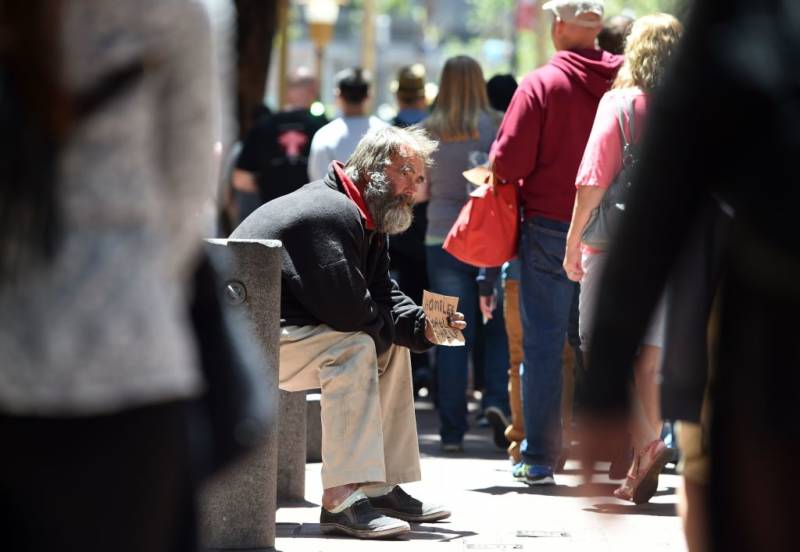“The financial health of cities depends on having financially secure residents,” says Signe-Mary McKernan, the director of the Opportunity and Ownership Initiative at the Urban Institute. “And when residents struggle to make ends meet, cities can too.”
In 2018, according to census data, the median household income in San Francisco County was $112,336, far higher than the statewide average of $75,277 and among one of the higher rates in the nine-county Bay Area. And yet, an estimated 168,000 of the 360,000 families in San Francisco — or 47% — are considered financially insecure, according to the report.
The organization’s estimates were based on 2014 data from the U.S. Census Bureau, which they analyzed and put into a predictive model for different U.S. cities, including San Francisco. No other Bay Area cities were included in the study of 10 major U.S. urban areas.
In San Francisco, families have to contend with skyrocketing housing prices, which could explain why, despite earning so much more than families in other counties and states, many in the city are still unable to save.
“We often think about income as a solution, but what we found in this research is that low-income families with savings are more financially resilient than middle-income families without savings,” says McKernan. “If you’re low income with $2,000 or more, you’re less likely to be evicted and miss payments than a middle-income family that has no savings.”

